There are three primary ways to structure the purchase or sale of a business: asset purchase, stock purchase, or merger. Each has distinct advantages and disadvantages for the buyer and seller, respectively. A qualified M&A (mergers and acquisitions) attorney will help you decide which structure is best suited for your needs.
Methods
An asset purchase is where some or all of the assets of a company are purchased by a buyer. An acquisition agreement is negotiated and executed by the parties, setting forth a due diligence period and a closing date, similar to a real estate transaction. The agreement will specifically list the assets and liabilities being purchased by the prospective buyer. The result after closing is the buyer ends up with only the specific assets and liabilities listed in the acquisition agreement.
A merger is where a target company is merged with a purchasing company, or vice versa. Just as with an asset purchase, there will be a transaction agreement and a due diligence period, but there are procedures that must be followed for a plan of merger to be approved by the shareholders of the target company and shareholders of purchasing company. There are different types of mergers, and it can get complicated. Suffice it to say that the target company can either merge with the purchasing company, thereby extinguishing the legal existence of the target company; or alternatively, the purchasing company can merge with the target company, thereby extinguishing the legal existence of the purchasing company. The result in either case is the merged company ends up with all of the assets and liabilities of the target company.
A stock purchase is a third way to structure an acquisition. This is accomplished through a stock purchase agreement and there is also a due diligence period. With a stock purchase, the buyer seeks to gain ownership of all of the target company’s shares. The purchasing company would then own all of the target company’s assets and liabilities, making the target company its wholly owned subsidiary. A risk with this transaction is that all shareholders may not sign off on the sale or exchange of their stock, although the deal can be structured to avoid this result.
Pros and Cons of Each Method
The structure of the purchase can be a subject of intense negotiations between the buyer and seller, because each structure type has varying advantages and disadvantages for each the buyer and seller.
An asset purchase is generally the preferred structure for the buyer because, if done properly, it eliminates the risk of taking on hidden liabilities of the target company, and it also generally provides superior tax advantages for the buyer. The primary tax advantage is that it allows the buyer to claim a ‘stepped-up basis’ in those assets with appreciating value, which generally will reduce the buyer’s tax burden. However, an asset purchase is a less attractive option for a seller that files as a C Corporation, because it can result in double taxation. This is because the C Corporation would be taxed for a liquidation at the corporate level, and the amounts distributed to shareholders would be taxed again as capital gains. The Seller also could be subject to taxes on deprecation recapture on some of the assets sold. Notwithstanding the foregoing, a lengthy discussion on tax law is beyond the scope of this article.
On the other hand, mergers and stock purchases are generally preferable for Sellers for three reasons. First, the Seller usually desires to sell its entire business because it is a simpler process. Second, the Seller does not have to worry about continuing liabilities, or how to dispose of assets not purchased by the buyer. Third, mergers and stock purchases provide tax advantages for the seller, including the avoidance of the double taxation problem for C Corporations and the avoidance of paying taxes on depreciation recapture. The tax consequences should be more thoroughly analyzed with the assistance of a qualified CPA. Your attorney in the transaction will probably recommend bringing in other experts where appropriate to help guide the process so that you receive the greatest benefit for your bargain.
Conclusion
There’s a lot to consider when thinking about selling or buying a business. Ryan A. Abrams, Esq. is skilled in M&A transactions, and can guide you the process so that you only have to worry about the business side of things. Call us today.


